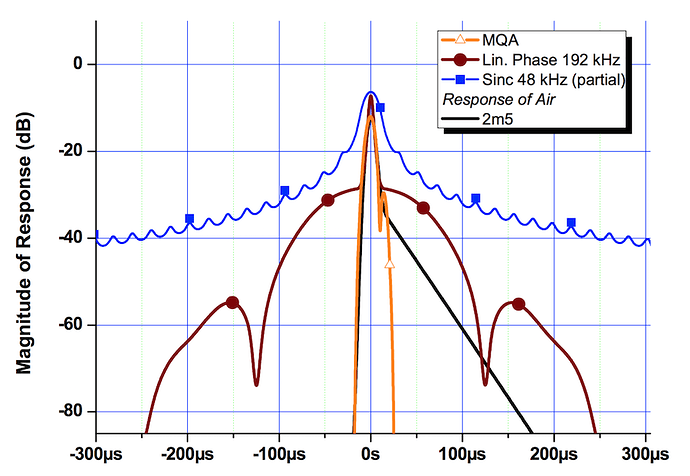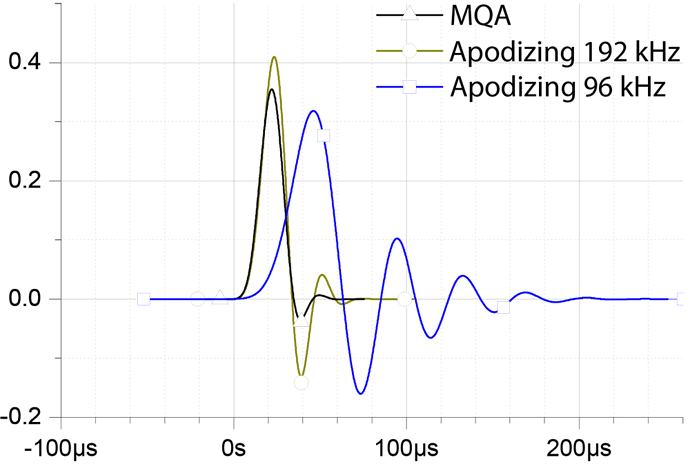Why should I care about the technical ascpect if it sounds better to me.
Do you really mean that how it works is equally important than how it sounds. To me the most important thing is how it sounds. I don’t care how it works as long as it sounds better than non MQA.
What do you listen to - the music or the technic?
I’m a classically-trained musician (piano, clarinet, opera singer) who is also a computer / IT manager as my “day job” - so I find it unbelievable when people are not curious how things actually work!
I love music, but at least half my enjoyment is understanding the technology behind it.
I understand that. But when you listen to music I hope that the technic behind reproducing music comes second, so when you listen to a symphony you dont wonder what bitrate, compression or filter it is played back with.
As a trained musician as you, the sound must be more important than the technic that it is reproduced with. You say that it is important for you to know the technic behind the reproduction of how the recorded music is done is as always pesonal, but couldn’t affect how you enjoy your listening.
For me it is not important if the music is MP3 (what 90% of the streaming listernes enjoy) or MQA. The most important is what I like. But then as an “audiophile listener” I think that MQA sounds best for me (regardles if I don’t understand all the technical aspects of MQA).
On a per Hz basis, the theoretical noise floor of non noise shaped 16 bit PCM is right around -140 dBFS (e.g. -96 - log 20,000). What frequency resolution is that graph using?
AJ
I don’t think enjoying music and understanding technology are mutually exclusive. Same way with movies: I can appreciate great movie making while also noting the clarity of the picture and soundtrack (I.e., freedom from compression artifacts, etc.). Or viewing a painting or sculpture: it’s interesting to me to understand the tools and technique the were used to create the work.
As I said, some are incurious, but to me it’s all part and parcel of my enjoyment. Horses for courses.
Just a last question for my curiosity, would you have enjoyed your music, movies or paintings less if you hadn’t known the technics?
because you are trained as an active musician.
most musicians are nog audiophiles. They lack the money -and buy secondhand speakers lijke Tdl .75 transmissions.
Absolutely. I am insatiably curious (about everything), so understanding how the world operates is essential for my enjoyment.
where is the edit…
The little pencil… We have a lot of Musicians pass through Our music venue They get their fix at the gigs, rehearsals and enjoying other bands on the same bill. Then there is studio time and playing/writing all the time.
They have no money and little need for Hi Fi. The Blackfeathers made us laugh when they told the story of buying a microphone instead of paying council tax.
Chris
P.S. I included a link, which has been removed, for reasons of clarity and veracity but it was considered spam. This was not my intension and apologise to anyone who took it that way. All music activities at the venue are held on a voluntary non profit basis so no financial gain was gained or desired.
This was presented as the measured noise floor on a sampling or recordings. Rooms, mice, mic amps are not -140 dB.
Yes, I know. But that does not answer my question. And if the triangular information space in that graph is taken at face value, then it is encoding less than 16 bit resolution.
AJ
I think their point is that at the upper range, above the 24 kHz range of 48 kHz standard compatible sample rate, dramatically less than 16 bits are required. That’s the whole point.
The triangular is not taken just as face value but a throughout research on psycho-acoustic human hear modelling.
Based on how low the signal can be encoded, the encoding in fact extended well beyond the 16 bit CD resolution, up to around 20-bit at low frequency of the audio band and reduced to about 17 bit at around ~60kHz. The only puzzling is the signal doesn’t starts at 0dB but at around -12dB. Anyone care to explain that?
Here is rough maths:
16 bit resolution: 0dB to -96dB
20 bit resolution: 0dB to -120dB
24 bit resolution: 0dB to -144dB (unattainable in normal practice)
An unclipped broadband signal cannot be 0 dBFS per Hz. The actual level is the integral of all levels at all frequencies in the audio band.
Yes, those are broadband figures. Per Hz figures are ~43 dB lower for the usual audio band.
AJ
Exactly, when you factor in the psycho-acoustics human modelling accurately and for what I’ve just described above, subjectively through listening, one may not able hear the difference between a uncompressed PCM and MQA. Moreover MQA went one step further, by reducing the ‘ringing’ in time domain, this greatly improve the sound quality.
Will this explain the fact when I listen to MQA and PCM master of the same material, MQA tends to sound softer than the PCM master counterpart?



